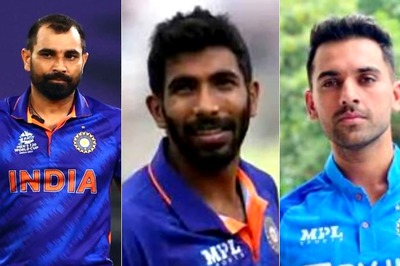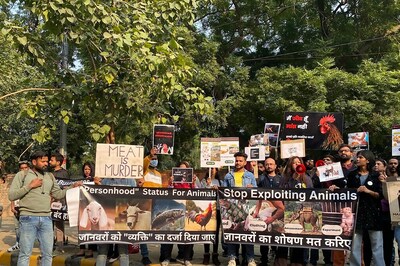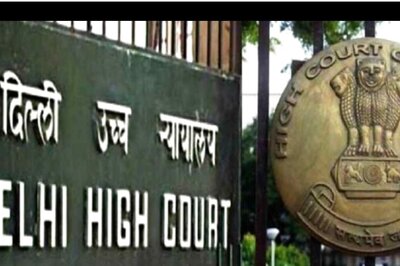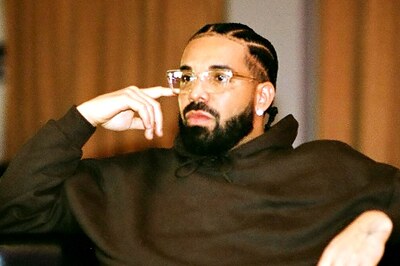
views
BANGALORE: When you think of Salsa, the first name which comes to your mind is Lourd Vijay. From being an MBA graduate to a world reknowed dancer with his own dance school LVDS(Lourd Vijay Dance Studio); from being a promoter of Latin culture music and dance in the country to a Guinness World record holder for the most number of swing dance flips in a minute (39),he has done it all. We catch up with him, just before the Sixth Indian International Salsa Congress kicked off in the city on Friday.How does Salsa and India combine?Salsa is one of the most evolved dance forms. It has a very strong Indian connection. When Punjabi gypsies migrated from India to north Sindh province to Persia, (later settled in Spain, the Flamenco was born. It has its roots in India and is based out of our very own Indian dance form Kathak,which is also considered the mother of Flamenco. And Flamenco,in turn plays a very important role in Salsa styling.Thats where you see the similarities in hand styling and footwork. In fact,whenever we look at tracing the evolution of Salsa, we can’t confine it to a particular city, region or country. It also has a very strong African, French and Spanish influence. Though it was born in the streets of NewYork from the Puertorican and Dominician republican settlers there who also contributed to different dance forms like Mambo, Jazz, Latin jazz etc. So, Salsa has gone a full circle and come back in a totally different form. It left as Kathak and came back as Salsa.How is salsa growing in India, in terms of popularity?It is going crazy by the day. Back in 1997,we had six students. Today, we can’t even count the number of students we have. Until 2001, we were the only dance school in India teaching such vast variety of dance forms. Now, you have them in every nook and corner.What were the challenges you faced? Was salsa easily accepted or was it just romanticised?When it started, people didn’t know what it was. It initially started off as a stress buster, later caught up, with the advent of media.It is one of the most popular dance forms across the world because it is not structured and regimented. And, we Indians are very open and dance-centric. So, learning doesn’t become that difficult. At the same time, Salsa has got folkloric and classical dance value to it from its evolution perspective. Like Bharatnatyam, you have ballet and jazz, which requires years of practice.There are different dance parts to salsa.You can’t learn it in three to six months or even one year. It has been fourteen years for me and I am still learning.It depends on how good, you want to be.What are the different platforms for a dancer other than movies and reality shows?There are a lot of international championships happening here.This year, we have the All India Salsa Championship. We are doing it as a qualifier to the world championships.Winners from here will represent India in the Hongkong Championship.The prize money is huge-quarter of a million dollars.It is like a big grand slam, with amazing exposure. With solo salsa championships and general dance competitions we keep building platforms to showcase talent.How has your role changed,over the years? My responsibility has increased to being a promoter than just being a dance school owner. I have to find talent and get people going. I have been the Indian ambassador for the Hong Kong salsa championship for the last three years. It is an ongoing responsibility.You have come a long way. Now,how do you plan to take it to the next level?We have already taken it to the next level.We are doing the Goa and Chennai salsa dance festival. This year,we are trying to do a specialised festival-with three different dance forms like Bachata, zouk and (Pizamba) from West Africa, French Caribbean and Brazil. In the salsa congress, we have 60 different styles forms being taught. Plus, we are not just restricted to classes and performances. We have gone to the corporate level. We have a propreitory module of using dance as a form for team building.How do you plan to take it to the masses?We have plans to introduce it in the school level.We have also planned something called a Dancathon, a workshop which will take place from 2 - 5 pm on the final day, during the Salsa Congress (August 12 -14).The motto of Dancathon is Have body, can move. We decided on it because dancing is more basic than walking, running and cycling. Our brain is neurologically programmed to dance and react to rhythm.How have you transformed over the years and how difficult is it,to dance for a living or make it as a dancer in India?Of course, it has been a gratifying experience. I quit my business to do this. Money is not as big as it is, in a regular business. It is a challenge to maintain the same lifestyle, as I had in the past and you just try to make it a living proposition. And it is still not easy to make a living out of it, but it is not impossible. But you need to constanly pursue your passion to make a mark.How did dancing happen to you.Have you always dreamt of it?It happened by default. It isn’t like I followed my dream. In fact, I come from an MBA background. I started dancing only part-time.What message would you like to give to the youngsters wanting to pursue dancing?There are a lot of newbies today. They are all good and equally talented. They are creating a niche. All I want to tell them is, don’t forget your ground, because there comes a point where you are ready to do anything to get there. It shouldn’t become cut-throat like an FMCG sector. Go with a very prepared mind. Do not jump into things without thinking twice. You can’t say, I want to be a dancer now. Think, plan and save up. Groom yourself to an extent, you are really good. Set high benchmarks.Has world’s perception of India changed in terms of salsa?Yes. We have been winning the European championship and the Australian salsa classic. I am the head judge of the Asia Pacific. I was invited last month to judge the Colombian Salsa championship.Obviously, there is some notice of the country, that is being taken.Worst criticism you have ever received?That I can’t dance and that Salsa is frivolous.That too coming from some big names in the industry.I think,you can’t negate other dance forms. If you are a matured dancer,you must respect everything. Even pole dancing is an art. I think criticism is a part of growing and when you reach the top, you make a thousand enemies and only one friend.


















Comments
0 comment